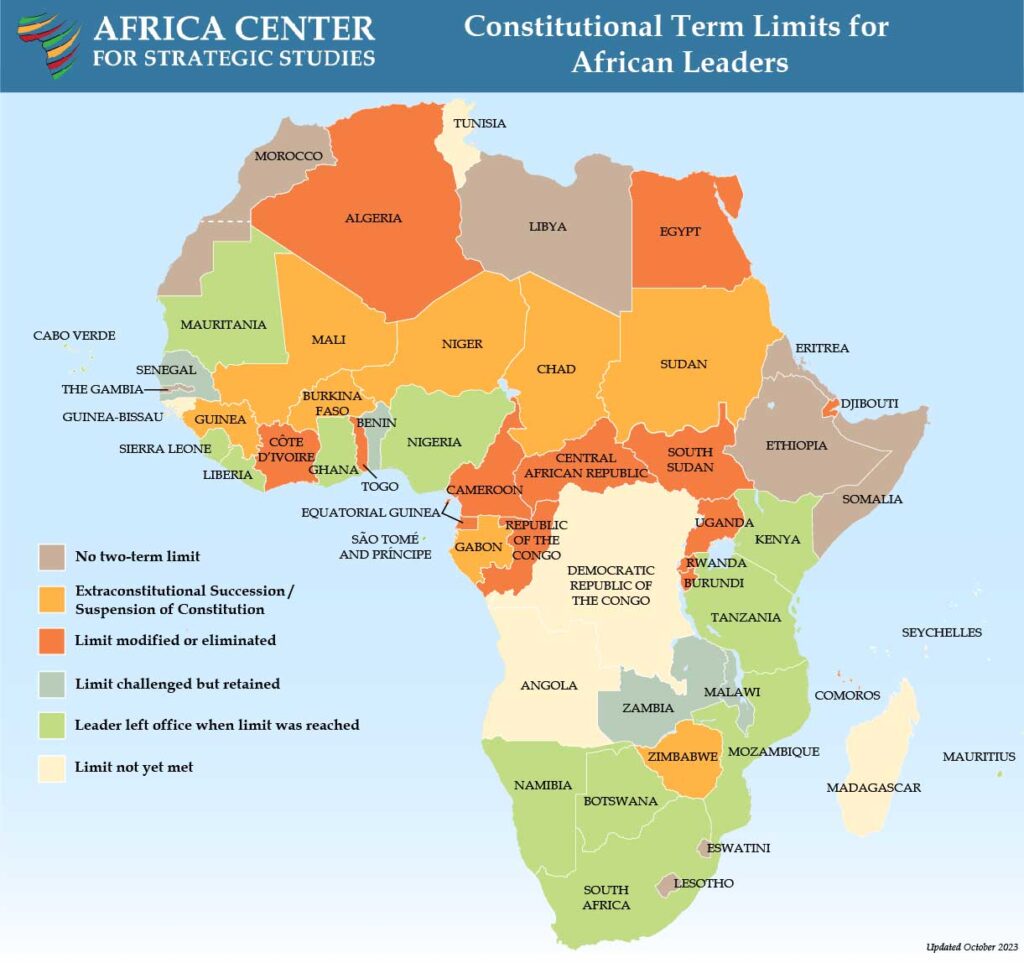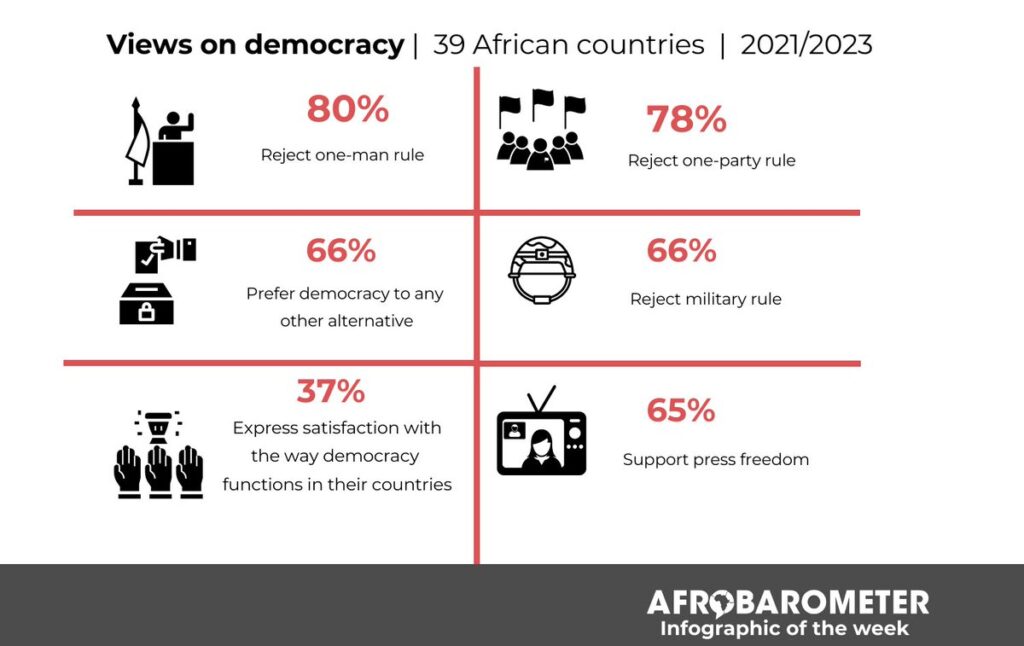
Africa Center for Strategic Studies
Africa’s recent coups should not be misinterpreted as reformist, according to a new analysis. Military coups that occurred within already authoritarian governments—Chad, Gabon, Sudan, and Zimbabwe—were led by actors who were a part of or worked closely with the previous regime, says the Africa Center for Strategic Studies. Accordingly, they are a continuation of the closed power structures that have dominated these countries—and disregarded term limits—for decades.
The coups against democratically elected leaders in Niger, Mali, and Burkina Faso, furthermore, are attempts to restore military governance in countries with long (and disastrous) legacies of military rule. In each of these cases, the coups have jettisoned nascent norms of leaders respecting term limits, the report adds.
 In addition to highlighting the governance costs from term limit evasions via higher levels of autocracy, corruption, and conflict, the analysis draws out the strong link between term evasion and the recent spate of coups in Africa. Five of the eight countries that have experienced coups since 2015 had leaders who evaded term limits.
In addition to highlighting the governance costs from term limit evasions via higher levels of autocracy, corruption, and conflict, the analysis draws out the strong link between term evasion and the recent spate of coups in Africa. Five of the eight countries that have experienced coups since 2015 had leaders who evaded term limits.
The relationship works in the opposite direction too. Ten of the fourteen leaders who evaded term limits during that same period originally came to power via coup or military intervention. RTWT
 The recent coup in Gabon was “a change in hats”, nothing more, said Dave Peterson, senior director of the Africa Program at the National Endowment for Democracy (NED). “Clearly, if you want to go back in terms of events, the collapse of the Gaddafi regime in Libya began to exacerbate the insecurity in Mali and across the Sahel,” he told Al Jazeera.
The recent coup in Gabon was “a change in hats”, nothing more, said Dave Peterson, senior director of the Africa Program at the National Endowment for Democracy (NED). “Clearly, if you want to go back in terms of events, the collapse of the Gaddafi regime in Libya began to exacerbate the insecurity in Mali and across the Sahel,” he told Al Jazeera.
Yet recent Afrobarometer surveys (2021-2022) show that an average of two-thirds of the respondents (66%) expressed a preference for democracy over any other system of government, E. Gyimah-Boadi writes for The Wilson Quarterly. They also rejected non-democratic alternatives like one-man rule (80%), one-party rule (78%), and military rule (67%). Even more reassuringly, support for media freedom increased by 12% between 2014 and 2022; preference for accountable governance over effective governance went up by 7%, and the need for the president to comply with court decisions rose by 5%.







